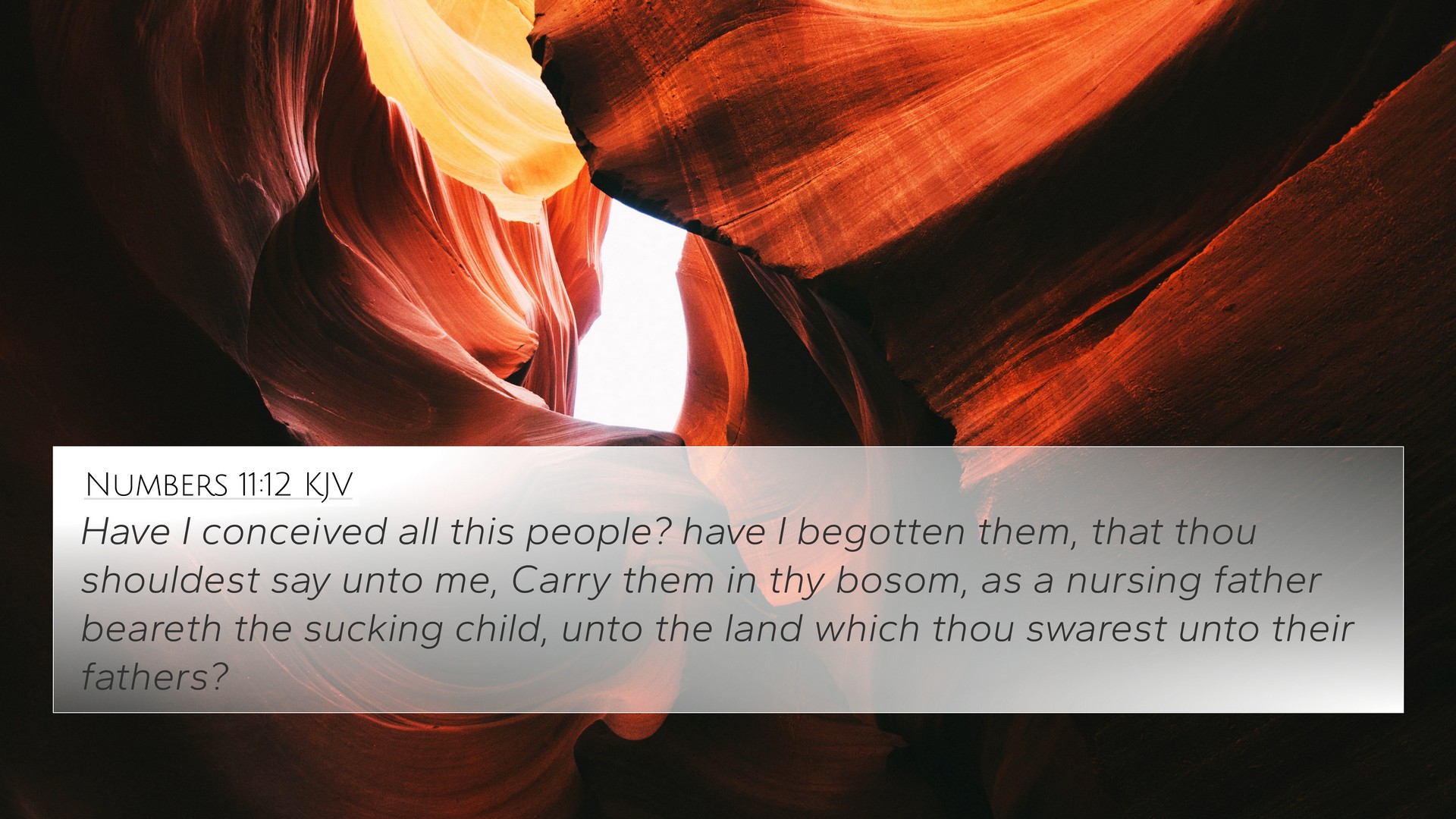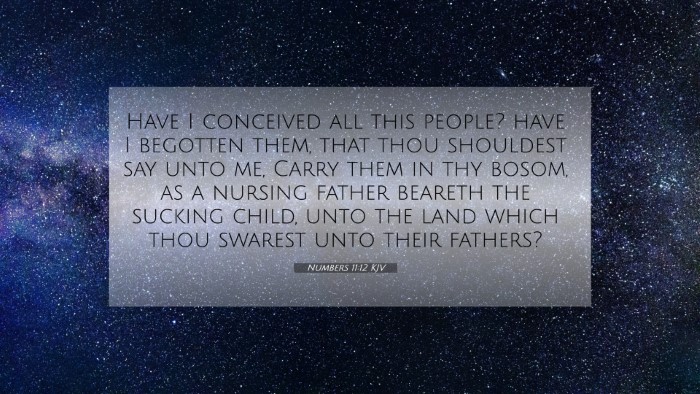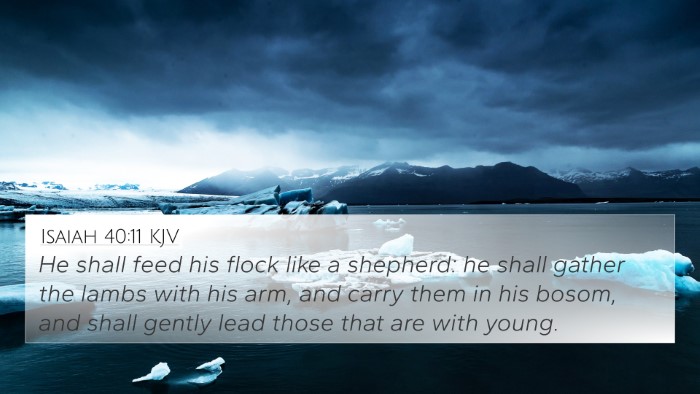Understanding Numbers 11:12
Verse: Numbers 11:12 - "Have I conceived all this people? have I begotten them, that thou shouldest say unto me, Carry them in thy bosom, as a nursing father beareth the sucking child, unto the land which thou swarest unto their fathers?"
Summary of Meaning
This verse captures the moment when Moses expresses his deep distress and frustration over the burdens of leadership. He feels overwhelmed by the responsibility of leading the Israelites and questions his role in cultivating them as a nation. By employing the metaphor of a nursing father, Moses underscores the intensity of the care required in leadership and his sense of inadequacy.
Commentary Insights
-
Matthew Henry:
Henry emphasizes the human aspect of Moses' complaint. He reflects on how Moses feels as though he lacks the capacity to nurture and sustain the people he leads. The image of carrying them "in thy bosom" illustrates a tender connection and profound responsibility, highlighting the burden that leaders often bear.
-
Albert Barnes:
Barnes notes that Moses' words reveal his recognition of the Israelites as God's chosen people, yet he grapples with the overwhelming task of shepherding them. Barnes also suggests that this verse marks a pivotal moment in which Moses seeks divine support and reassurance from God regarding his leadership role.
-
Adam Clarke:
Clarke provides insight into the emotional and psychological strains of leadership, discussing Moses' plea to God. He interprets Moses' analogy of a nursing father not only as a depiction of tender care but as a request for assistance to fulfill his daunting responsibilities.
Bible Verse Cross-References
- Exodus 18:17-18: Jethro advises Moses on leadership burdens, indicating Moses’ struggle to manage the people's needs.
- Isaiah 49:15: God compares His care for His people to that of a nursing mother, paralleling Moses' feelings of nurturing responsibility.
- 1 Thessalonians 2:7: Paul conveys a similar sentiment as he describes his ministry approach as gentle and caring, akin to a mother’s nurturing.
- Deuteronomy 1:12-13: Moses reflects on the challenges of leading the Israelites and the need for shared leadership to lighten the load.
- James 1:5: Encouragement to seek wisdom from God aligns with Moses’ need for divine guidance in leadership challenges.
- Matthew 23:37: Jesus expresses His longing to gather the people like a hen gathers her chicks, portraying God’s nurturing desire.
- Psalms 78:72: David's shepherd-like leadership is highlighted, illustrating the deep care for the people similar to Moses' feelings.
Connections Between Bible Verses
Numbers 11:12 draws strong connections with several other scriptures concerning leadership, guidance, and divine support. Inter-Biblical dialogue occurs through these references, suggesting a consistent theme around the burdens of leadership and the necessity of divine assistance. Moses’ analogy of a nursing father connects deeply with numerous verses where God is depicted as a nurturing figure. These parallels enhance the understanding of God's relationship with His people across the biblical narrative.
Thematic Bible Verse Connections
-
Leadership Burden: The struggle of leaders is a recurring theme throughout Scripture, where figures like Moses, David, and Paul articulate their challenges and need for support.
-
Divine Support: The notion that God provides wisdom and strength to His leaders echoes through several texts, illustrating the collaborative relationship between divine help and human leaders' actions.
-
Nurturing Love: The metaphor of nurturing connections across passages reinforces the idea of God as a caregiver, characterized by profound love and responsibility.
Exploring Cross-References for Deeper Understanding
Utilizing tools for Bible cross-referencing can illuminate these truths. These tools help readers discover links between verses and dissect themes across the Old and New Testaments.
Conclusion
Numbers 11:12 serves as a foundational text for understanding the complexities of leadership in a biblical context. By cross-referencing with other passages, one can uncover rich layers of meaning surrounding Moses’ experience and relate it to broader biblical principles of care, responsibility, and divine partnership. This comparative Bible verse analysis not only enhances individual scripture study but also reveals the interconnectedness of scripture that speaks to the human experience across time.














